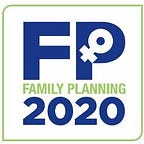Looking Ahead for 2018
What to expect for the family planning community — and the partnership — in 2018
A note from Beth Schlachter, FP2020 Executive Director
The coming year is shaping up to be a pivotal one for FP2020 and the global family planning community. The Family Planning Summit last July generated dozens of new and renewed commitments to expand rights-based family planning around the world, and much of our work this year will be continuing to help weave those threads together. The global financing architecture is continuing to evolve, and we’ll be evolving with it. And throughout our work this year — at the country, regional, and global level s— we’ll be thinking about the future and how to position family planning programs for long-term sustainability.
A major topic this year will be the financial angle: how and why to fund family planning. In 2017 many partners rallied to support family planning programs and SRHR service providers during a time of uncertainty and defunding, and these efforts will continue in 2018. It was one year ago this month that the U.S. government reinstated and expanded the Mexico City Policy, also known as the Global Gag Rule. The family planning community is working to track the impact of the policy on family planning and other health programs so that stakeholders in and out of government can better understand the consequences over time.
The Fifth International Conference on Family Planning (ICFP), scheduled for November in Rwanda, will present the investment case for family planning as a development priority. The theme of the conference is “Investing for a Lifetime of Returns,” and sessions will explore the impact of family planning on education, empowerment, economic growth, environmental health, and quality of life. The months leading up to the ICFP will be busy with technical discussions as demographers, statisticians, and family planning experts work toward consensus on the data and the investment case for family planning programs.
Other conferences will focus on the “how” side of the funding question. USAID got the ball rolling this month with a “Sustainable Financing for Family Planning” meeting in Ghana, bringing together key partners from African countries for the launch of a family planning financing roadmap. Also this month, the World Bank’s Global Financing Facility (GFF) will conduct a country workshop in Ghana for the 10 new GFF countries announced in November.
In April the World Bank and USAID will co-host the Third Annual Universal Health Coverage Financing Forum, to be held in Washington in advance of the IMF/World Bank Spring Meetings. Universal Health Coverage (UHC) is emerging as the preferred approach to ensure that all people have access to the health care they need. UHC focuses on strengthening a country’s health system overall, and is part of the move away from vertical programs and toward the integrated framework of the Sustainable Development Goals. A crucial area of work going forward will be to ensure that family planning is included in UHC schemes — and that UHC approaches expand access to contraception, mitigating any unintended consequences. UHC will challenge us all to think differently and work together more effectively.
We’ll also be keeping our sights on quality, rights, and the central importance of building programs that genuinely meet people’s needs. This month the FP2020 Secretariat is hosting a meeting on “Improving the Metrics on Quality of Care in the Context of Rights-based Family Planning Services.” It’s a follow-up to last year’s groundbreaking Quality of Care Call to Action, and will focus on how to measure and monitor quality in family planning programs. We’ll also be collaborating with the World Health Organization and other partners to organize an Evidence Summit on rights-based family planning in advance of the ICFP. The Evidence Summit will pull together the outcomes of various investments in rights-based programs from partners across the sector.
Our Adolescents & Youth agenda is moving forward with a dual emphasis on engaging young people and utilizing evidence.
We’re adding two Youth Representatives to the FP2020 Reference Group this year; these two young people will serve as critical links between FP2020 and youth networks in the family planning community. On the evidence side, the FP2020 Secretariat is hosting a technical workshop in March on the global research and measurement agendas to improve adolescent and youth access to contraceptives.
Our country engagement calendar this year is packed. Coming on the heels of two very productive Regional Focal Point Workshops last year (Asia in May and Anglophone Africa in November), we’re looking forward to the Francophone Focal Point Workshop in Cameroon in March. We’ll also be co-hosting a Southeast Asia Civil Society Focal Points Meeting in New Delhi in February, followed by FP2020 country visits to India, Nepal, Bangladesh, and Sri Lanka. The next Asia Focal Point Workshop will be held this fall, with the exact time and place to be announced later this spring.
FP2020’s Reference Group plans to meet twice this year, once in the Spring/Summer, and again on the margins of the ICFP, so look for details to come as those meetings are scheduled. We also expect to announce new FP2020 country commitments this year — at least two, and possibly more. Countries are continuing to join the FP2020 partnership because this development model works: country-led, globally-backed, grounded in human rights principles, supported by data and evidence, and accountable to all.
Stay tuned!
Visit www.familyplanning2020.org to learn more.
